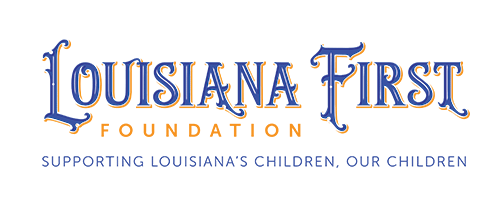Women’s Health
WOMEN'S HEALTH BLOG November 2022
What Women Need To Know
About Diabetes
An estimated 30 million Americans have diabetes. Women are at a greater risk of being diagnosed. In Louisiana, 12.8% of women are diagnosed compared to 10.4% of men. However, there are things we can do to help prevent a diagnosis, or to manage diabetes better.
What is Diabetes?
Diabetes is a disorder that occurs when the pancreas fails to produce insulin, or the body is unable to use the insulin produced. This results in a condition called hyperglycemia, which is high blood sugar levels. As food is digested, it breaks down into glucose (sugar) and enters the bloodstream. Simultaneously, the pancreas produces insulin that enters the bloodstream to move sugar throughout the body to provide energy. When this process fails, diabetes is the result.
Types of Diabetes:
- Type 1 Diabetes is an autoimmune disease, which means the body’s immune system attacks the cells that produce insulin. Type 1 Diabetics take insulin daily. This is known as insulin-dependent diabetes mellitus or juvenile diabetes because it can affect children. It is unclear what causes it, but it is believed to be genetic or environmental.
- Type 2 Diabetes is a result of the body not being able to make enough insulin or it’s unable to use it correctly. This is known as insulin-resistance. The blood sugar cannot enter the cells to be stored for energy and accumulates in the blood. These individuals may not require insulin and are known as non-insulin-dependent diabetics.
- Gestational Diabetes is diagnosed during pregnancy for patients without a previous diagnosis of diabetes. Expectant mothers are screened between 24- and 28 weeks by taking a Glucose Tolerance Test. Women who test positive are likely to develop Type 2 diabetes later on.
Risk Factors:
According to the Department of Health and Human Services, Office of Women’s Health, women that are 45 years old and older, with a family history of diabetes, overweight, not physically active, history of high cholesterol, high blood pressure, heart disease, or stroke, polycystic ovarian syndrome, gestational diabetes, delivered a nine-pound infant, and certain racial and ethnic groups are at greater risk for Type 2 diabetes.
Direct Impact on Women:
Women are prone to increased risk of heart disease, urinary tract infections, yeast infections, changes in the menstrual cycle, and issues with menopause, intimacy, fertility, and pregnancy. It is essential to talk to your doctor about these issues.
Prevention is Key:
It’s imperative to be intentional about committing to lifestyle changes that will help decrease risks and prevent diabetes by making healthy choices, including maintaining a moderate weight, eating a healthy diet, exercising regularly, avoiding smoking, and monitoring sugar levels, which is typically checked at your annual wellness visit.
Know the Symptoms:
Undiagnosed or poorly managed diabetes can be detrimental. It is imperative to call your doctor if you experience frequent urination, unusually thirsty, losing weight unintentionally, hungry often, blurred vision, numbing or tingling of hands or feet, extremely tired, dehydrated, dry skin, sores that heal slowly, nauseated, vomiting, abdominal pain, and increase in infections.
Avoid Complications:
Diabetes is the seventh most common cause of death in the United States, and women are 42% more likely to die from diabetes. Complications as a result of diabetes include coronary heart disease, nerve damage, vision or hearing loss, amputation, kidney failure, and depression, to name a few.
Care and Treatment:
Proper care and treatment can help manage diabetes and prevent complications through education, support, medication management, weight control, monitoring labs, blood sugar, meal planning, and exercise.
Diabetes may alter your lifestyle, but you can still enjoy living.

Cyntrel Janeau,
DNP, MN, RN, C-EFM, LNC
Cyntrel Janeau, a native of New Orleans, LA, has 30 years of experience as a Registered Nurse working in diverse roles from bedside nursing to leadership. Her clinical background includes Maternal-Child, Surgical Services, and School-based Nursing. She has extensive experience in Quality, Patient Safety, Performance Improvement, Regulatory Compliance, and Grievance Management. She started her nursing career at the historic Charity Hospital in New Orleans. Currently, she works at Ochsner Baptist in the TeleStork Bunker, remotely monitoring fetal strips for multiple hospitals. She is a proud alumnus of Charity-Delgado School of Nursing, where she was an inaugural graduate of the Associate of Science in Nursing in 1993. She completed the inaugural Legal Nurse Consultant program in 2003 at the Louisiana State University (LSU) School of Nursing. Cyntrel obtained a Bachelor’s in Nursing in 2006 and a Master’s in 2009 from LSU. She was inducted into Sigma Theta Tau National Honor Society of Nursing and became a Great 100 Nurse in 2010. She recently graduated with honors (4.0) earning a Doctor of Nursing Practice in Healthcare Systems Leadership from Chamberlain University in August 2022. She is Certified in Electronic Fetal Monitoring and is a member of the Association of Women’s Health, Obstetrics, and Neonatal Nursing.

